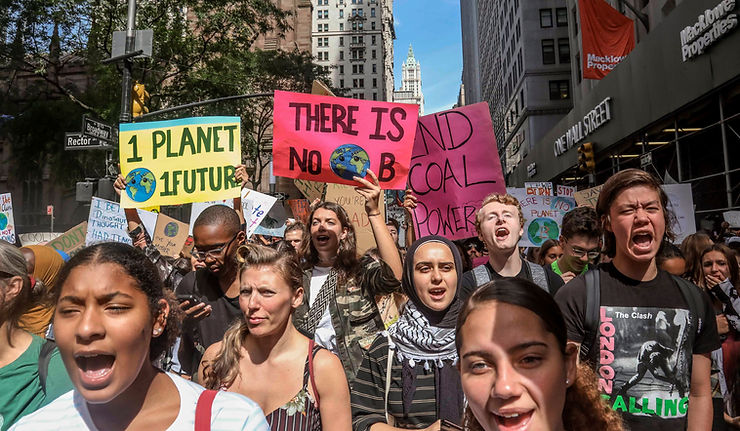By: Jy Hung Ong
In June 2020, the board of the Climate Reality Project required climate change to be taught in schools. This comes when most residents in New Jersey wanted climate change to be taught in schools. So, the board of the Climate Reality Project decided they wanted to implement the residents’ idea.
Currently, New Jersey is the first and only state to require climate change to be taught in schools through kindergarten and 12th grade. The state has interwoven climate change with nine subjects taught in schools, including physical education.
Tammy Murphy, the wife of Democratic governor Phil Murphy, is the force behind these changes. She said that climate change education is crucial to raise awareness of the planet’s health to students, prepare for an economy based on renewable energy, and adapt to climate shifts as students reach adulthood.
Murphy also serves on the board of the Climate Reality Project, which began meeting in 2019 with more than 100 educators to discuss new standards. The board is considering whether to require teaching climate change in two more subjects, ELA (English Language Arts) and mathematics.
“There’s no way we can expect our children to have the solutions and the innovations to these challenges if we’re not giving them the tools and resources needed here and now,” Murphy said.
The state does not teach the negatives of climate change; it instead zones in on connecting with the natural world and solving the earth’s problems. Climate change is usually seen as a heavy topic; however, New Jersey has turned it into something more positive.
“When we shield them from so much, they’re not ready to unpack it when they learn about it, and it becomes scarier than when they understand they’re in a position where they can actively think about solutions,” Lauren Madden, a professor for elementary science education, said. “When you take kids seriously that way and trust them with that information, you can allow them to feel empowered to make locally relevant solutions.”
People have called out the teaching of climate change as “indoctrination”. This means that they think that New Jersey is teaching their students a set of beliefs, in this case climate change, uncritically.
However, a poll conducted by Fairleigh Dickinson University has shown that 70 percent of the states’ residents want climate change to be taught in schools. Dan Cassino, one of the professors who directed the poll, said it might be Murphy’s most popular program.
This survey is shown nationwide as well. Most parents want their child(ren) to learn about climate change.
At Slackwood Elementary, another New Jersey school, several parents were delighted that their kid was able to learn about climate change. “If they’re being more respectful to the environment, they’ll be good human beings. They need to know what they can do. I don’t want them to be left behind,” said Niral Sheth, whose daughter Navya attends the school.
Suzanne Horsley, a teacher at Toll Gate Grammar School, told her students to throw balls of yarn, which represented carbon dioxide molecules, to classmates standing on plastic disks.
The first round of the game was in the 1700s, so there were a lot less carbon dioxide molecules and more forests. The kids were able to complete the game in under four minutes. Nevertheless, the third round of the game was set in 2022. So, there were a lot more carbon dioxide molecules and less trees due to cars, factories, electricity, and massive deforestation. The kids found the third round a lot more difficult than the first.
“Education is certainly a way that we could have perhaps slowed down where we are right now in terms of the climate crisis,” Margaret Wang, the chief operating officer of SubjectToClimate, a nonprofit organization helping educators to find climate lessons, said.
“Climate change jobs are already opening, and children will need climate change skills to discover scientific innovations and tell stories, advocate, inspire, and make public policy,” she finished.
Sources:
https://www.nytimes.com/2023/06/15/climate/climate-education-schools-children.html
https://www.nytimes.com/2023/06/19/insider/climate-change-new-jersey-schools.html
https://www.washingtonpost.com/education/2022/11/05/new-jersey-climate-change-education-schools/











